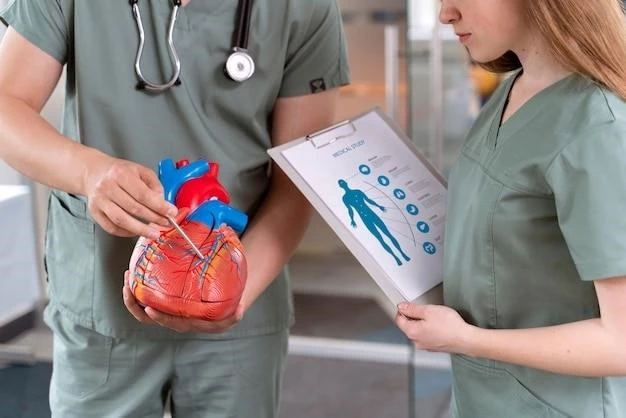Symptoms of Cardiac Amyloidosis
Common Symptoms
The common symptoms of cardiac amyloidosis include fatigue, shortness of breath, swelling in the legs, irregular heartbeat, and weight loss․
Uncommon Symptoms
Uncommon symptoms of cardiac amyloidosis may include carpal tunnel syndrome, purpura (skin rash), hoarseness, difficulty swallowing, and nerve problems in the hands and feet․
Diagnosis and Treatment of Cardiac Amyloidosis
Diagnosis
Diagnosis of cardiac amyloidosis involves tests like echocardiograms, cardiac MRI, biopsy, and blood tests to detect abnormal proteins or genetic mutations associated with the disease․
Treatment
Treatment for cardiac amyloidosis focuses on managing symptoms, slowing disease progression, and may include medications, stem cell transplants, heart transplants, and supportive therapies to improve quality of life․
Causes of Cardiac Amyloidosis
Genetic Mutations
Genetic mutations in genes such as TTR, AL, or other proteins can lead to the abnormal production of amyloid fibrils that build up in the heart, causing cardiac amyloidosis․
Abnormal Protein Production
Abnormal production of proteins like amyloid fibrils, typically from immunoglobulin light chains or transthyretin, leads to the accumulation of these abnormal proteins in the heart, causing cardiac amyloidosis․
Prognosis and Survival Rates of Cardiac Amyloidosis
Prognosis Factors
Prognosis factors for cardiac amyloidosis include the type of amyloidosis, extent of heart involvement, response to treatment, overall health status, and presence of other underlying conditions affecting prognosis․
Survival Rates
Survival rates for cardiac amyloidosis vary based on the type and stage of the disease, treatment response, overall health of the patient, and presence of complications․ Early diagnosis and appropriate management can improve survival outcomes․
Cardiac Amyloidosis in Elderly Patients
Prevalence in the Elderly
Cardiac amyloidosis is more prevalent in elderly patients due to aging-related changes and higher risk of developing conditions that can lead to amyloid buildup in the heart, impacting the structure and function․
Challenges in Diagnosis and Treatment
Challenges in diagnosing cardiac amyloidosis in elderly patients include overlapping symptoms with other age-related conditions, limited awareness, and the need for specialized tests․ Treatment challenges stem from potential comorbidities, medication interactions, and balancing therapy effectiveness with patient tolerance․
Research Developments in Cardiac Amyloidosis
Advancements in Diagnosis
Recent advancements in diagnosing cardiac amyloidosis include advanced imaging techniques like PET scans, biomarker analysis, and genetic testing, enabling earlier and more accurate detection of the disease for timely intervention and improved outcomes․
Novel Treatment Approaches
Novel treatment approaches for cardiac amyloidosis include targeted therapies to reduce amyloid deposits, heart transplant in select cases, drug treatments to stabilize proteins, and ongoing research into gene silencing and immunotherapies for more effective management and outcomes․
Cardiac Amyloidosis vs․ Other Heart Diseases
Key Differences
Key differences between cardiac amyloidosis and other heart diseases lie in the unique pathophysiology of amyloid deposits affecting heart function, distinct diagnostic markers, and specific treatment approaches tailored to address amyloidosis-related complications․
Overlapping Features
Cardiac amyloidosis may share overlapping features with other heart diseases such as heart failure and arrhythmias, making accurate diagnosis crucial․ Both can present with symptoms like shortness of breath and fatigue, despite differing underlying mechanisms requiring specific evaluations․

Lifestyle Modifications for Cardiac Amyloidosis
Diet and Exercise Recommendations
Dietary recommendations for cardiac amyloidosis typically involve reducing salt intake, staying hydrated, and following a heart-healthy diet․ Moderate exercise tailored to individual capabilities can help maintain overall health and improve quality of life for individuals with cardiac amyloidosis․
Stress Management and Support
Managing stress is crucial for individuals with cardiac amyloidosis․ Seeking emotional support, joining support groups, and practicing relaxation techniques can help cope with the condition’s challenges, improve mental well-being, and positively impact overall health outcomes․
